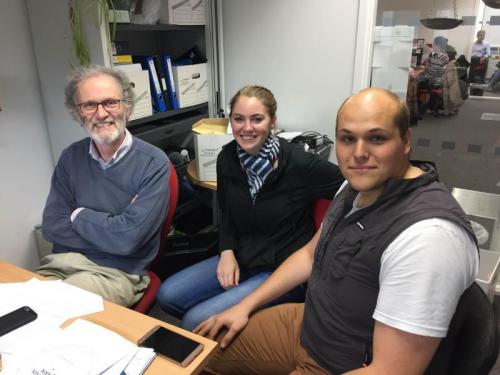Researchers at the Institute of Mental Health, based at The University of Nottingham, have created a one-step process of getting the best research evidence directly into Wikipedia – helping all those seeking information on their health condition and treatment.
Students working within the Cochrane Schizophrenia Group, based at the Institute of Mental Health, have developed the SEED (Systematic EvidEnce Dissemination) programme – a function which automatically places tables of research findings into the relevant Wikipedia pages.
The swift process is enhanced by an additional feature which aims to simplify some of the language used so it is more accessible to a public audience.
The SEED programme is being seen as a major breakthrough by university academics who have been seeking a quick and easy way of getting research findings into the hands of clinicians and patients.
The SEED programme was developed by Lena Schmidt and Johannes Friedel, two German students from Hochschule Furtwangen University on work experience with the Cochrane Schizophrenia Group. Professor Clive Adams, co-ordinating editor of the Cochrane Schizophrenia Group, said:
“We are the biggest single producer in the world of academic reviews for the care of people with schizophrenia. Our editorial base is in Nottingham but we have more than 1,100 reviewers globally who have produced 300 systematic reviews. Our work looks at evaluating the prevention, treatment and rehabilitation of people with severe mental illness and in particular, schizophrenia.
“This SEED process will transform how we make public the best evidence. An academic review might sometimes attract only a handful of readers but we have seen that mental health information about a certain drug treatment for example placed on Wikipedia attracts about 5,000 visits a month.
“A Cochrane review is a ‘kite mark for excellence’ and now we have a one-stop process to get the best evidence directly into the hands of those who might benefit. It is a major step forward and very exciting for all of us working to get the best evidence into informing the frontline of care.”

.
